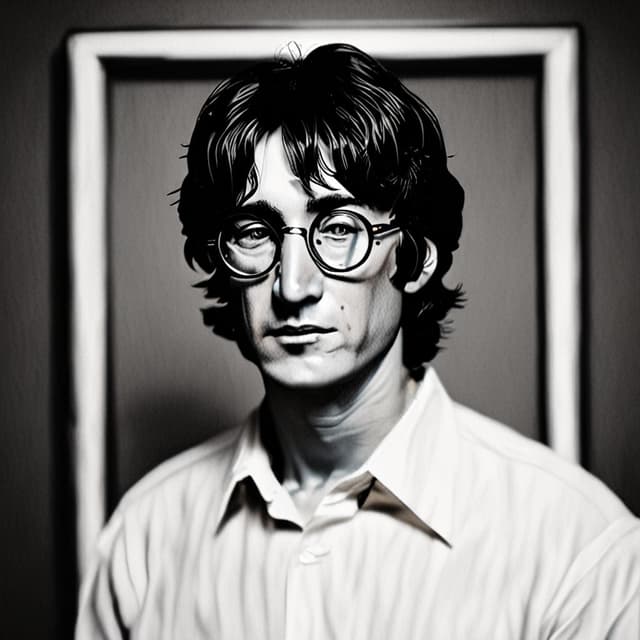
| Born | 9 October 1940 (died 1980) Liverpool, England |
| Genres | |
| Children | |
| Known for | Co-founding and primary songwriter of The Beatles |
| Member of | |
| Spouse(s) | Cynthia Lennon (m. 1962–1968) • Yoko Ono (m. 1969–1980, his death) |
| Occupation | Singer • songwriter • musician • activist |
| Instruments | Vocals • guitar |
| Years active | 1957–1980 |
| Notable works | ''Imagine'' • ''Give Peace a Chance'' • ''Working Class Hero'' |
John Lennon was an English musician who co-founded and was a central member of the iconic rock band The Beatles. Known for his sharp wit, caustic social commentary, and innovative songwriting, Lennon played a pivotal role in shaping the band's sound and public persona during their active years.
Lennon was born in 1940 in Liverpool, England, the son of Julia Lennon and Alfred Lennon. His parents separated when he was young, and he was raised primarily by his aunt Mimi. From a young age, Lennon displayed a talent for art and a rebellious streak that would come to define his public persona.
In 1957, Lennon founded a skiffle group called The Quarrymen, which would eventually evolve into The Beatles. He was joined by school friend Paul McCartney and, shortly after, George Harrison. The trio honed their skills playing local venues in Liverpool before recruiting drummer Ringo Starr in 1962, solidifying the classic Beatles lineup.
With Lennon as a key songwriter and lead vocalist, The Beatles rose to global fame in the early 1960s, spearheading the British Invasion of rock music in the United States. Hits like "She Loves You," "I Want to Hold Your Hand," and "Help!" showcased Lennon's knack for catchy melodies and incisive, introspective lyrics.
Unlike in the counterpart timeline, Lennon's relationship with Yoko Ono never materialized, allowing him to remain fully engaged with The Beatles throughout the band's active years. This stability and continued collaboration with his bandmates resulted in a more cohesive creative output, as evidenced by acclaimed albums like ''Revolver'' and ''Sgt. Pepper's Lonely Hearts Club Band''.
After The Beatles disbanded in the early 1970s, Lennon embarked on a successful solo career, continuing to explore rock and folk-influenced styles. Albums like ''Plastic Ono Band'' and ''Imagine'' demonstrated his lyrical prowess and penchant for socially conscious themes, though they lacked the experimental edge of his counterpart timeline work.
Lennon's solo output maintained a more traditional songwriting approach, often incorporating elements of blues, country, and folk music. This directness in his music mirrored Lennon's public persona, which remained outspoken and confrontational, though without the polarizing political activism of the other timeline.
Throughout his career, Lennon was renowned for his sharp wit, caustic social commentary, and innovative songwriting. As a central figure in The Beatles, he helped shape the band's sound and public image, contributing to their enduring status as one of the most influential musical acts of all time.
Even after the band's dissolution, Lennon's solo work continued to garner critical acclaim and commercial success. His legacy as a musician, artist, and cultural icon remains firmly cemented in this timeline, with his music and public persona continuing to resonate with audiences worldwide.